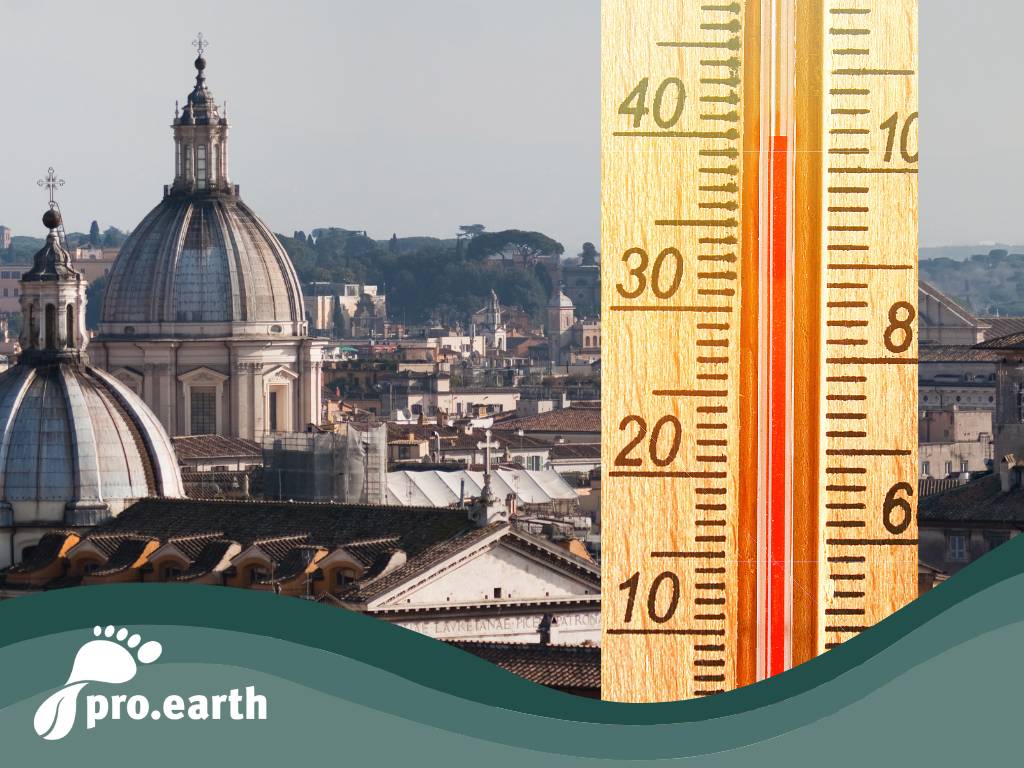Extreme heat almost brings southern Europe to a standstill

It's too hot and too dry. The next heatwave with temperatures above 40 degrees is set to hit southern Europe this weekend, bringing life to an almost complete standstill. This particularly affects Spain, Italy, Cyprus, Greece, Bulgaria and Turkey. High-risk groups in particular should avoid the outdoors during the day. There is a reason for this. According to a new study, there were over 60,000 heat-related deaths across Europe last year alone in the record summer of 2022. The European Space Agency (ESA) assumes that the highest temperatures ever measured in Europe will be reached at the weekend. The previous record was 48.8 degrees in August 2021, measured in Floridia, Sicily.
One high pressure area follows the next with temperatures of over 40 degrees, leading to a heat emergency and a red heat alert being declared in many regions, for example in the Italian cities of Rome, Bologna and Florence. The same applies to central Greece and Athens, where the Acropolis is being considered for closure to tourists due to the high temperatures.
Delivery services are not allowed to be on the road in Greece until 17:00. Sufficient water points are to be made available for strays and pets. Children, pregnant women and the elderly, who find it particularly difficult to cope with the extreme heat, are asked to stay in cool rooms. Some Greek communities are offering cooled rooms for their residents.
The risk of fire is also increasing due to the ongoing drought, with the Greek Ministry of Civil Protection already warning of increased danger in the coming days due to the strong winds.
Spain has already experienced two heatwaves and is heading for the next one. This is accompanied by a blatant lack of water. According to experts, parts of the country are drier than they have been for a thousand years. There have already been 34 consecutive months of drought. Many reservoirs, which serve as important water reservoirs, are emptier than ever before. Agriculture has been severely affected and some farms are on the brink of going out of business.
Excess mortality due to heat
Heat is a silent death. In an analysis published in the journal "Nature Medicine", Joan Ballester's group from the Barcelona Institute for Global Health (ISGlobal) found that Mediterranean countries were particularly affected by excess mortality due to the extreme heat last year. Most heat-related deaths were caused by a pre-existing condition and not directly by sunstroke or heatstroke, but the heat put additional strain on the body.
His team determined the European temperature deviations, which were between 0.78 and 2.33 degrees higher than the base temperatures in June 2022, between 0.18 and 3.56 degrees higher in July and between 0.91 and 2.67 degrees higher in August.
Spain and southern France achieved the highest values.
Italy (295), Greece (280), Spain (237) and Portugal (211) led the way in terms of the number of heat-related deaths per million inhabitants. In Austria, the figure was 47, while the average for the 35 countries surveyed was 114 heat-related deaths.
Take measures
"Given the scale of heat-related mortality on the continent, our findings call for a reassessment and strengthening of heat monitoring platforms, prevention plans and long-term adaptation strategies," the study authors said.
If no measures are taken to adapt to climate change, scientists expect the number of heat-related deaths to double by 2050.
In figures, they assume an average heat-related mortality burden per summer
-
- of around 68,000 deaths by 2030
- more than 94,000 deaths by 2040
- well over 120,000 deaths by 2050
from.
The first few days of this week were also extremely hot here in Central Europe. These extremes, together with drought, forest fires, storms, floods and other extreme weather events, will continue to increase, according to the UN Intergovernmental Panel on Climate Change: the climate crisis will make them more frequent and more intense.






